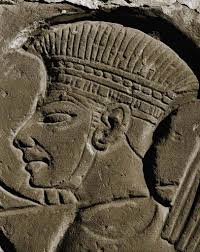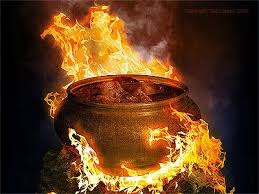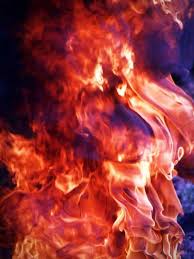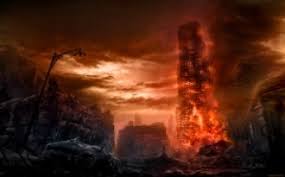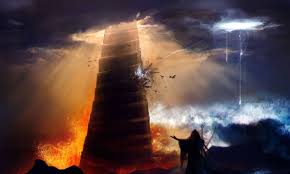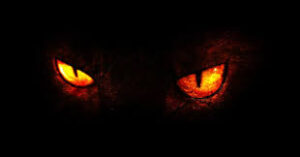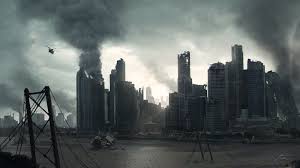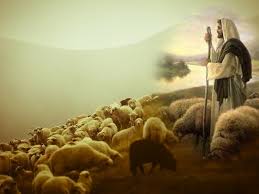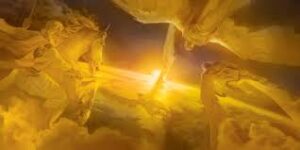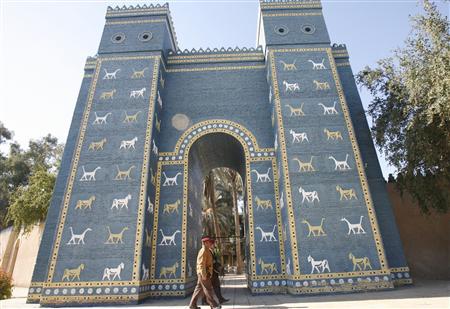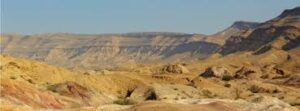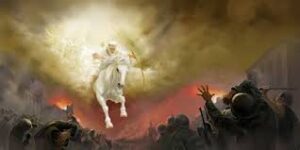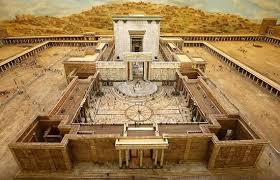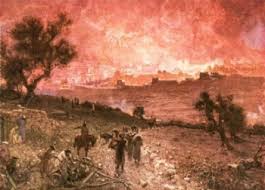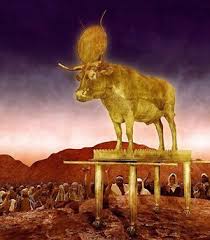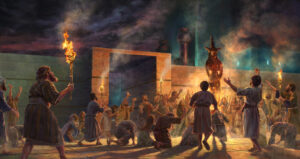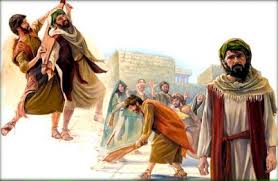Fm – Jeremiah in Prison 37: 1-21
Jeremiah in Prison
37: 1-21
Jeremiah in prison DIG: How would you make sense of Zedekiah’s feelings about the prophet? Why does Zedekiah respect him at times and then ignore him other times? Why does Jeremiah try leaving the City? Why doesn’t Irijah believe in him (21:8-10)? How does ADONAI use the evil events recorded in verses 14-21 for Jeremiah’s welfare and Zedekiah’s downfall? How does Yirmeyahu show his ability to think on his feet? Why is he persuasive? How did Jeremiah deal with the people of his day? What was it like to be with him when he wasn’t preaching a sermon or in the middle of a confrontation?
REFLECT: Do you know people who only want to hear “God’s will” that matches their own? Do you waver on ADONAI sometimes yourself? What did Jesus say about such behavior (Revelation 3:15-16)? Yirmeyahu has a trust problem, not altogether on his own making. How is trust built or broken? How can trust be rebuilt once broken? How do you make an appeal?
587 BC during the eleven-year reign of Zedekiah
Zedekiah son of Josiah was made king of Judah by Nebuchadnezzar king of Babylon; he reigned in place of Jehoiachin son of Jehoiakim (37:1). Zedekiah was king for eleven years and all through those years he had conversations with Yirmeyahu. The king had mixed feelings about the prophet. Zedekiah respected him. How could he not? Jeremiah’s stature was immense, his integrity impressive, and his courage was legendary. But he was also an embarrassment, for the king permitted himself to be surrounded with the usual crowd of court officials, who were trying to gain advantage from their association with him. He knew full well that Jeremiah had a quiet contempt for such people.
In the summer of 588 BC Zedekiah had hope when the Egyptian army entered the land of Judah. Perhaps Zedekiah hoped that Yirmeyahu’s prayers would persuade God to grant a victory with the Egyptians and force Babylon out of Palestine. Babylon had just lifted her siege of Yerushalayim because Pharaoh’s army had marched out of Egypt in an attempt to rescue Y’hudah from Babylon (to see link click Fp – A Lament Over Egypt). And when the Babylonians who were besieging Jerusalem heard the report about the Egyptians, the Babylonians withdrew temporarily from the City to meet the challenge. It was during this lull that an incident of the shameful and treacherous treatment of the slaves took place (see Fy – A Warning to Zedekiah). One senses in Jeremiah that hopes were high that the Egyptians would prevail (34:8-11). Yirmeyahu, however, warned the people against undue optimism since the City of David was doomed. It was a very brief time, perhaps only a few weeks, when the Egyptians were defeated and the siege was resumed. This was a chance for those who believed Jeremiah’s message to flee. Unfortunately, we have no record of any who did.
But a similar opportunity happened much later in Jewish history where the righteous of the TaNaKh did escape. When the Romans put Jerusalem under siege there had also been a lull in the fighting in 69 AD after Emperor Nero committed suicide and General Vespasian returned to Rome to be crowned as the new emperor. As a result, army camps surrounded Yerushalayim but the war did not progress. The Jews who believed in Jesus as the Messiah recognized that the situation was a perfect reflection of Yeshua’s prophetic Word: When you see Jerusalem being surrounded by armies, you will know that its desolation is near. Then let those who are in Judea flee to the mountains (Luke 21:20). This led to a mass exodus of messianic Jews from Tziyon and Judea. They escaped to the mountains that are mainly in the modern so-called West Bank. In Pella, on the other side of the Jordan, in the region of Decapolis, they sought shelter from the imminent cruelty of the Roman’s war against the Jews. There they were received as peace-loving citizens and protected by King Agrippa.321 Not one single messianic Jew is known to have died at the destruction of Jerusalem in 70AD! Faith in Yeshua and His Word saved the lives of Jewish believers.
A weak, vacillating person, Zedekiah was appointed to rule, we suspect, because the Babylonians knew that he had no will of his own and would submit to what was commanded. What they failed to anticipate was that he would do whatever he was told by anyone who happened to be in the room with him. When the Babylonians temporarily withdrew their siege, the pro-Egypt group filled the king’s head with the idea that Judah could throw off Babylonian rule with the help of Egypt. He was easily swayed. Sometimes he would have qualms of conscience and call on Jeremiah for a consultation and, for a brief time, pay attention to the prophetic word. But nothing lasted very long. The man was a marshmallow. He fit into the plans stronger people had for him. He was not an evil person . . . just weak.
But neither Zedekiah, nor his attendants, nor the people of the Land listened (Hebrew sh’ma) to the words the LORD had spoken through Jeremiah the prophet (37:2). Zedekiah must have been one of the most difficult people in all of Jeremiah’s life. One king (Josiah) had been his close friend; one king (Jehoiakim) had been his relentless enemy. But this king was formless: he could never be counted on for anything, whether positive or negative. There was nothing to him. Meanwhile Yirmeyahu maintained his witness under the faithfulness of his God, quite apart from the fickle nature of his king.322
Scene One: Now Jeremiah was free to come and go among the people, for he had not yet been put in prison. King Zedekiah, however, sent Jehucal son of Shelemiah (who would shortly call for the prophet’s death in 38:4) with the priest Zephaniah son of Maaseiah (who was a member of request for prayer on the part of Jeremiah in 21:1) to Jeremiah the prophet with this message, “Please pray to ADONAI our God for us” (37:3). Suddenly Zedekiah wanted prayer. Perhaps he hoped that YHVH would repeat the miracle of 701 BC when He eliminated the Assyrian armies surrounding Jerusalem in the days of Hezekiah (see the commentary on Isaiah Gw – Then the Angel of the LORD Put To Death a Hundred and Eighty Five Thousand Men in the Assyrian Camp). But Yirmeyahu had already told Zedekiah about the fate of the City and the commencement of the siege. Zedekiah’s and Judah had reached the point of no return and the king’s request for prayer was merely a matter of circumstances . . . not conscience.
God’s answer, however, was not one Zedekiah sought. Then the word of the LORD came to Yirmeyahu the prophet. This is what ADONAI, the God of Isra’el says: Tell the king of Judah, who sent you to inquire of Me, “Pharaoh’s army, which has marched out to support you, will go back (shuwb) to its own land, to Egypt. Then the Babylonians will return (shuwb) and attack this City; they will capture it and burn it down. Do not deceive yourselves, thinking that the Babylonians will leave you like the false prophets are saying. They will not! Even if you were to defeat the entire Babylonian army that is attacking you and only slain men were left in their tents, they would come out and burn this City down (37:4-10). Such words, coming at a time when the morale of the people had been boosted by the Babylonian withdrawal, could only arouse bitter and violent antagonism against the prophet from Anathoth.
The Holy City was under final attack by the Babylonians. It would soon fall. Jeremiah had given counsel to the leaders and had preached to the people that the Babylonian presence was the judgment of ADONAI: It should be accepted and submitted to. They had sinned and they were being judged. The judgment was God’s way of restoring wholeness.
People didn’t like that. They kept trying to find ways to avoid the reality of judgment, of right and wrong, of sin and irresponsibility. One of their substitute ways of thinking was in terms of loyalty and disloyalty. Patriotism was used to muddle their sense of morality. It was as if they were saying, “Our beloved country is being attacked and we must be loyal to it. In times of crisis it is not right to criticize your leaders. It is disloyal, an act of treachery.”
Scene Two: The arrest of Jeremiah took place at some time during the interruption of the siege when there was a certain freedom for people to move about outside the City.323 One day, after the Babylonian army had temporarily withdrawn from Jerusalem because of Pharaoh’s army, Jeremiah started to leave Tziyon to go to his hometown of Anathoth three miles away in the territory of Benjamin to get his share of his property among the people there (see Fs – Jeremiah Buys a Field). But when he reached the Benjamin Gate on the north side of the City, the captain of the guard, whose name was Irijah son of Shelemiah ben Hananiah arrested him and said: You are deserting to the Babylonians (37:11-13)! This was understandable because Jeremiah had encouraged Zedekiah and the whole City to surrender and not fight the Babylonians (21:9 and 38:2). In fact, a number of Judeans did defect to the enemy (38:19 and 52:15). Plus, Yirmeyahu’s message of certain victory for Babylon was well known.
The priest from Anathoth had lived in the City of David his whole adult life. He had been a public figure for over forty years. He had established credentials as a loyal friend and adviser to the great King Josiah. Jeremiah had never for a moment rejected his identity as a Jew or exempted himself in any way from the obligations of a son of the covenant. He was no traitor. His message was from God, not himself. Most of the time he was not happy with the message he had to give. To anyone who knew him he was neither a bystander criticizing, nor a traitor propagandizing, but an insider agonizing.
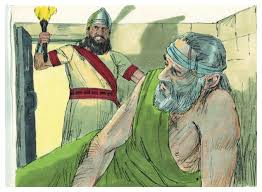
Jeremiah said: “That’s not true! I am not deserting to the Babylonians.” He was merely going home. But Irijah would not listen to him; instead, he arrested Jeremiah and brought him to the officials who had served during the reign of Jehoiakim. Those officials who were loyal to him (26:16 and 24, 36:11-19 and 25) were all taken away in the second deportation to Babylon in 598 BC. Therefore, when Nebuchadnezzar appointed Zedekiah king, he appointed new government officials who were antagonistic towards the prophet. They were angry with Yirmeyahu and had him beaten and imprisoned in the house of Jonathan the secretary, which they had made into a temporary prison. These men were upstarts who had no experience in government; hotheaded and shortsighted, they remembered how Jeremiah had compared them to bad figs (see Ei – Two Baskets of Figs). Apparently they had been waiting for any excuse to put the prophet in prison. Yirmeyahu was put into a vaulted cell in a dungeon, which was part of Jonathan’s house, where he remained until the downfall of the City (37:14-16).
Irijah was a man who used his job to escape his responsibilities as a human being. He was a bureaucrat in the worst sense of the word, a person who hides behind the rules and prerogatives of a job description to do work that destroys people. Without considering morality or righteousness, God or person, he did his job. We meet these people all the time. Every day people are hurt or demeaned by office-holders who refuse to look us in the eye, shielding themselves behind regulations and paperwork, secretaries and committees. Irijah was that kind of a person.
The most famous twentieth-century instance of Irijah is Adolf Eichmann, a key figure in the murder of six million Jews in Nazi Germany. At his trial in Jerusalem it became quite clear that he had nothing against Jews . . . he was just doing his job. No great venom of hate flowed in him; he was simply being obedient to what his superiors told him. Unimaginable evil comes from these unlikely sources: quiet, efficient, little people doing their job, long since having given up thinking of themselves as responsible, morale individuals.324
The resumption of the siege by the Babylonians prompted Zedekiah to communicate with Jeremiah again. Then King Zedekiah sent for him and had him brought to the palace (37:17a). The scene is just as moving as it is historically interesting. On the one hand was the prophet, disfigured by mistreatment, the prison atmosphere and hardships, but firm in his near historical prophecy, without malice, defiance, or exaggeration. He was physically subdued and emotionally humble. On the other hand was the king, who obviously had been led against his own will by his officials into rebellion against Nebuchadnezzar, anxiously watching the lips of the prisoner for a favorable word for himself, whispering secretly with the man whom his officials imprisoned for treason. Zedekiah was a pathetic follower. All his good intentions were worthless without some character behind it. It seemed as though the king was much more bound than the prisoner who stood before him!325
Scene Three: Then King Zedekiah asked him privately, “Is there any word from the LORD?” Something of Zedekiah’s character is revealed here. The meeting was secret because of the king’s fear of his officials. But even under duress Jeremiah could not compromise the truth: Yes, Jeremiah replied: You will be handed over to the king of Babylon. Then Jeremiah addressed Zedekiah respectfully and said to the King, “What crime have I committed against you or your officials or this people, that you have put me in prison? Where are your prophets who prophesied to you, ‘The king of Babylon will not attack you or this Land?’ But now, my lord the king, please listen. Let me bring my petition before you: Do not send me back to the house of Jonathan the secretary, or I will die there” (37:17b-20).
The courtyard of the guard was located next to the palace (Jeremiah 32:2; Nehemiah 3:25) and seems to have been used for men who did not require strict confinement. It was there that Yirmeyahu was able to conduct the business concerned with the purchase of his cousin’s land in Anathoth (34:1-15).
The secret interview ended with a kindly gesture from the king. Zedekiah then gave orders for Yirmeyahu to be placed in the courtyard of the guard and given bread from the street of the bakers each day until all the bread in the City was gone. But it was a slim ration. The bread was literally a disk of bread, meaning one piece of something like modern pita bread. So Jeremiah remained in the courtyard of the guard (37:21).
Jeremiah responded to Irijah and Zedekiah with relentless endurance. He did not bluster or curse. The prophet did not threaten or rail. Nor was he a lifeless doormat. The priest from Anathoth asserted his innocence and he endured. Yirmeyahu accepted this trivial stupidity with, it seems, composure, and persisted in his ministry as a prophet of God.



